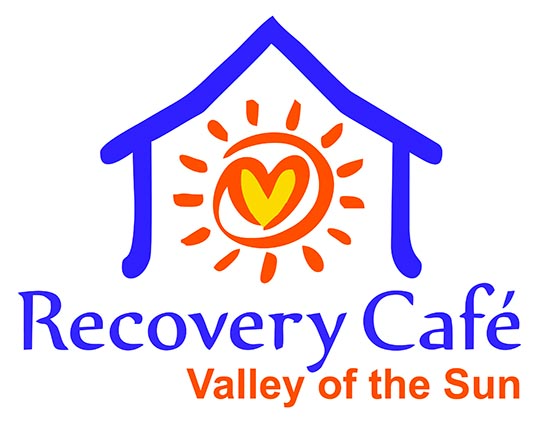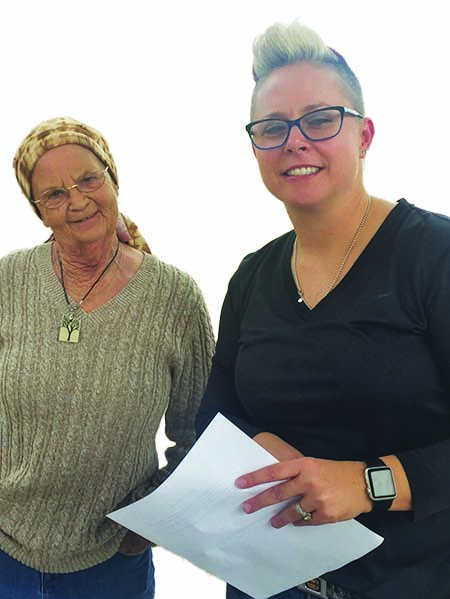From a Mental Health Breakdown to Finding Hope By Jessica Parsons When Brianna Livernois found herself in Bullhead City with her autistic daughter Cristina, thousands of miles away from...
From a Mental Health Breakdown to Finding Hope
By Jessica Parsons
When Brianna Livernois found herself in Bullhead City with her autistic daughter Cristina, thousands of miles away from her family in Idaho, the weight of her circumstances was more than she could bear. Isolated, and without support, she teetered on the edge.
Adding to her challenges, a diagnosis of schizophrenia, and an incorrect prescription, Brianna sank into an abyss. “I had a mental breakdown,” Brianna admits, while struggling to care for herself and her toddler. The Arizona Department of Child Safety (DCS) stepped in. Soon, a referral to the nonprofit, Mentally Ill Kids in Distress (M.I.K.I.D.) would provide a lifeline.
“We work in conjunction with the Mojave County courts, the dependency court team, and we have M.I.K.I.D. Family Support Partners in court from the first initial hearing all the way through the end of the case,” explains M.I.K.I.D. Project Administrator James Beecher.
M.I.K.I.D.’s Parent Support Now program was established in Mohave County in 2015 to provide early intervention in child safety removal cases. It was through this program that Brianna was able to reunite with her daughter after a year and a half of putting in the work. Her case was dismissed on March 21, 2024.
“Most children in these cases remain out-of-home for more than two years, that’s a national average,” says M.I.K.I.D. Vice President of Marketing and Development, Patrick Winters. “But, if we can intervene early and provide immediate support as a liaison with the court system, then we can help educate and assist families with reunification, treatment goals, and positive coping skills.”
Focus on Family
This is just some of what M.I.K.I.D. offers families in Arizona and parts of Colorado. From depression, to anxiety, and from ADHD to autism, M.I.K.I.D. focuses on improving mental and behavioral health issues plaguing children while also providing parents with resources and support to navigate the complexities of life, mental healthcare, and the court system.
“We are the largest family-run organization in the Valley with more than 80 percent of M.I.K.I.D.’s staff and 51 percent of the board having their own lived-experience with a behavioral health challenge in their own families,” says Patrick. “That means we can relate and understand at a deeper level some of the challenges our families face.”
M.I.K.I.D. was initially founded in 1987 as a support group, by a mom, Sue Gilbertson, after encountering obstacles in obtaining mental health services for her son Eric. Although they have since passed away, their legacy of improving behavioral health in children lives on.
Today, 37 years later, M.I.K.I.D. has grown to include respite care, home-visits, day camps for kids, group activities, reunification, and court intervention, all of which Brianna has taken part in. “It’s been really helpful, and I would recommend it to other families,” she says. “I was nervous in the beginning because I wasn’t sure what it would entail, but they helped me so much with the court case, and with Cristina; I just felt motivated and empowered.”
Brianna’s support system at M.I.K.I.D. includes Family Support Partner Tami Rickert along with Project Administrator James Beecher, a true team effort. “We are so proud of how far she has come,” says James. “In her time here, she has worked diligently, becoming a core participant. And, in the next part of their journey, Brianna will continue to receive Family Support services with Tami, and Cristina will receive Direct Support services with one of our Direct Support Providers. This will help reduce the risk of further out-of-home placements.”
Last year, M.I.K.I.D. served 4,000 children and their families, from birth to 25. Brianna is just one of those success stories. “Our goal is two-fold,” explains Patrick, “to provide support for parents in navigating the systems of care, and to help young people develop into stable, self-sufficient, and successful adults, which is our desire for Brianna and Cristina.”
Brianna is now looking toward the future with her daughter and believes sharing her story will help others who might be struggling. “Just don’t lose hope,” she says. “Stay connected and ask for help.”
Learn more: http://www.mikid.org 1-844-805-2080
































